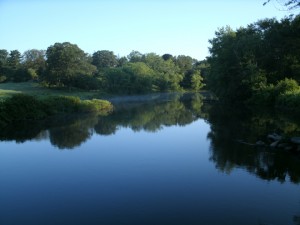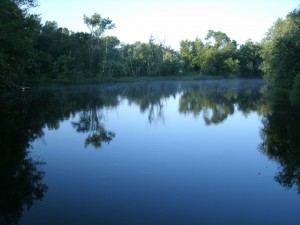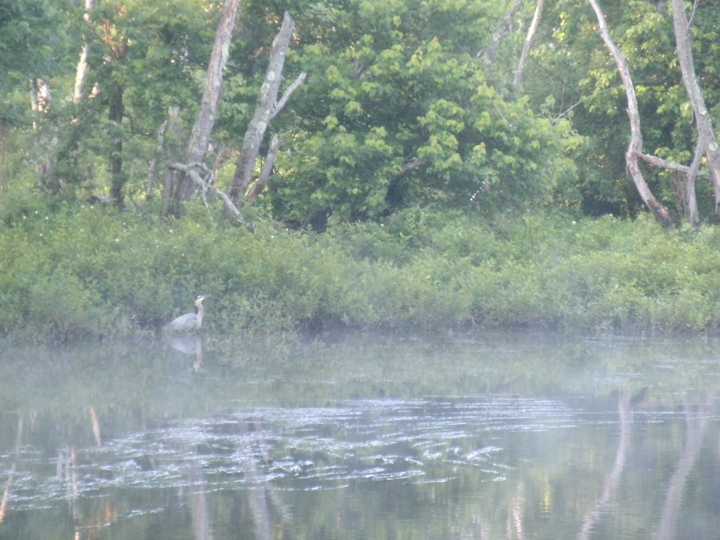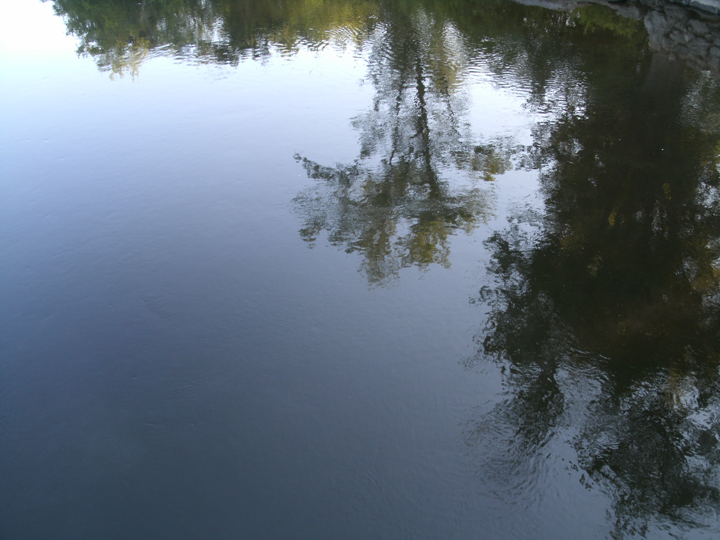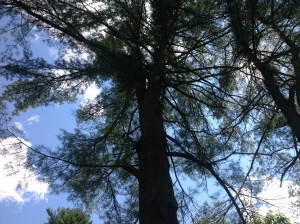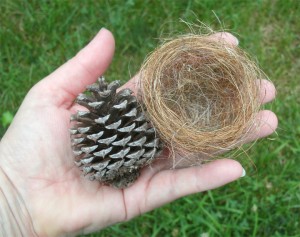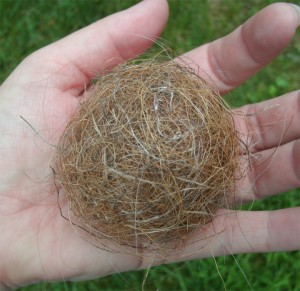By Corinne H. Smith
July 11, 2015, 6:30 a.m. North Bridge, Concord, Massachusetts.
I was due at Walden Pond at 7 a.m. to lead the annual silent Memorial Walk during The Thoreau Society Annual Gathering. I had fifteen minutes to spare before I had to pick up a fellow walker at her hotel. So I headed over to my favorite place in the area: the North Bridge.
Thankfully, the hour was too early for tourists. And the timing must have been off for joggers or dog-walkers too, because I had the place blissfully to myself. Or, I should clarify: I was alone, only as far as fellow humans were concerned. Once I tiptoed to the crest of the bridge, I was instead surrounded by birdsong.
The usual little brown chatterers were perched in the tall trees by the riverbanks. A catbird mewed from the thicket. A pair of red-wing blackbirds chased each other through the marsh on the opposite shore. Pigeons cooed from underneath the bridge boards. Every few seconds one of the pigeons would whappity-whap-whap to one of the other wooden posts below.
As I had hoped, the clear and cloudless sky made for a beautiful scene. My favorite scene. One so full of peace that it confounded me to think that the Revolution started here with weapons, confusion, gunshot, injury, and loss of life.
It was at this hour on the morning of April 19, 1775, that the colonial minutemen gathered in anticipation on the other side of the bridge. The red-coated soldiers would soon arrive in Concord from Boston, after having exchanged shots with the minutemen lining the road in Lexington. The paths of the two groups would cross here in about three hours. What happened would eventually be described by Ralph Waldo Emerson as “the shot heard ‘round the world.” Had the birds been singing on that morning, too?
I looked downriver, to the right. The Concord was beautiful. I looked upriver and toward the Old Manse boathouse, to the left. Suddenly I realized that a heron was fishing along the far shoreline, just beyond a bit of rising mist. I hadn’t noticed it before. I had had too much history on my mind.
Still, the birds sang, all around me. After a quick look around to make sure there were no further witnesses, I decided to join them. I chose the chorus from the John Denver song “Summer,” which I thought was one of the most transcendental sets of lyrics he ever wrote:
“And oh, I love the life within me,
I feel a part of everything I see.
And oh, I love the life around me,
A part of everything is here in me.
A part of everything is here in me.
A part of everything is here in me.”
Most singing bridges come with decks of metal grates that make automobile tires “sing” when they travel across them. This morning I changed the definition to include this other kind of singing: vocal, not physical. I sang the chorus several times, getting louder with each one. The heron must not have been a John Denver fan. When I looked back to the far shore, he was gone.
Still, I have a sense for what Henry David Thoreau may have thought if he’d been able to look down from this “rude bridge” and see the reflection of the morning sky in the Concord water:
“Heaven is under our feet, as well as over our heads.”

